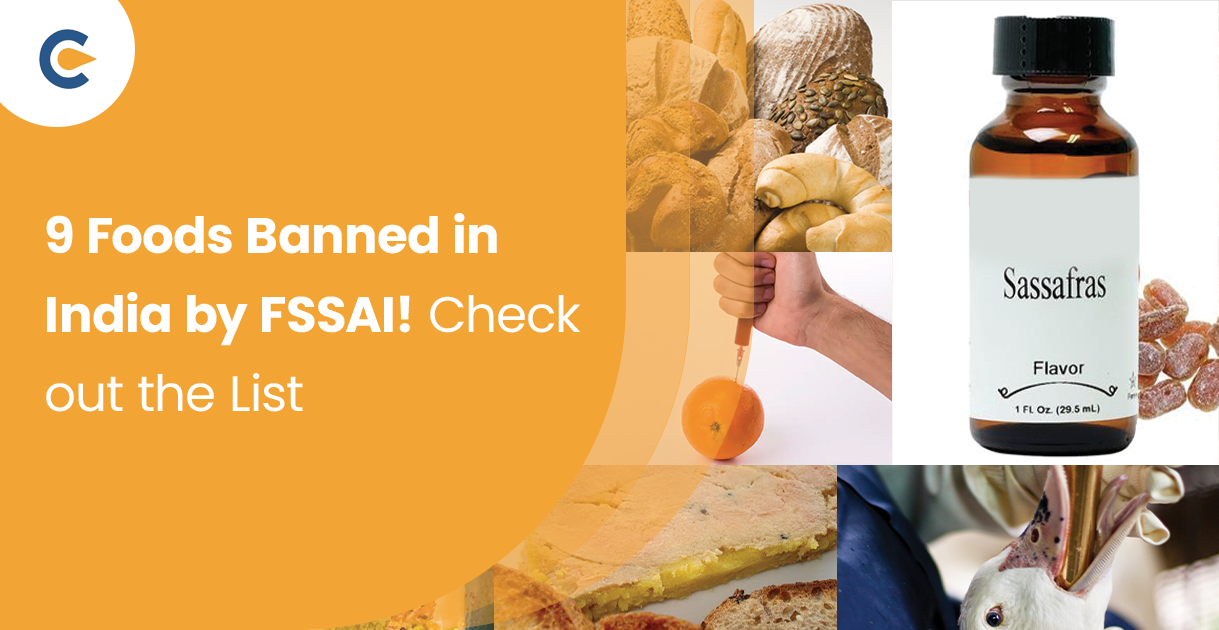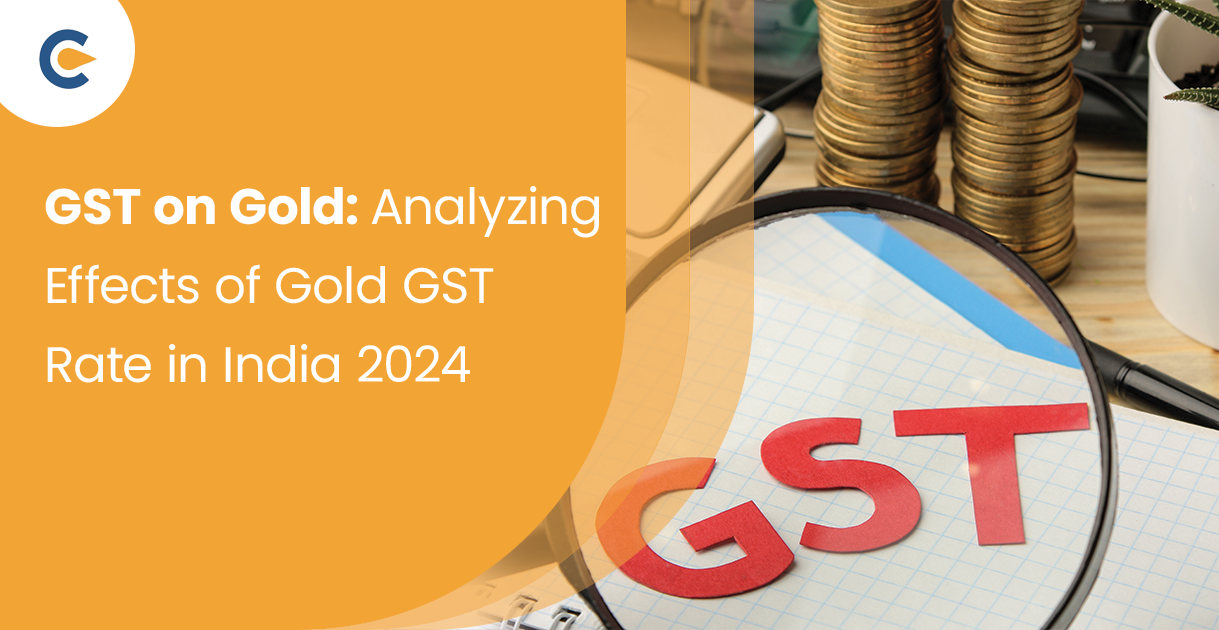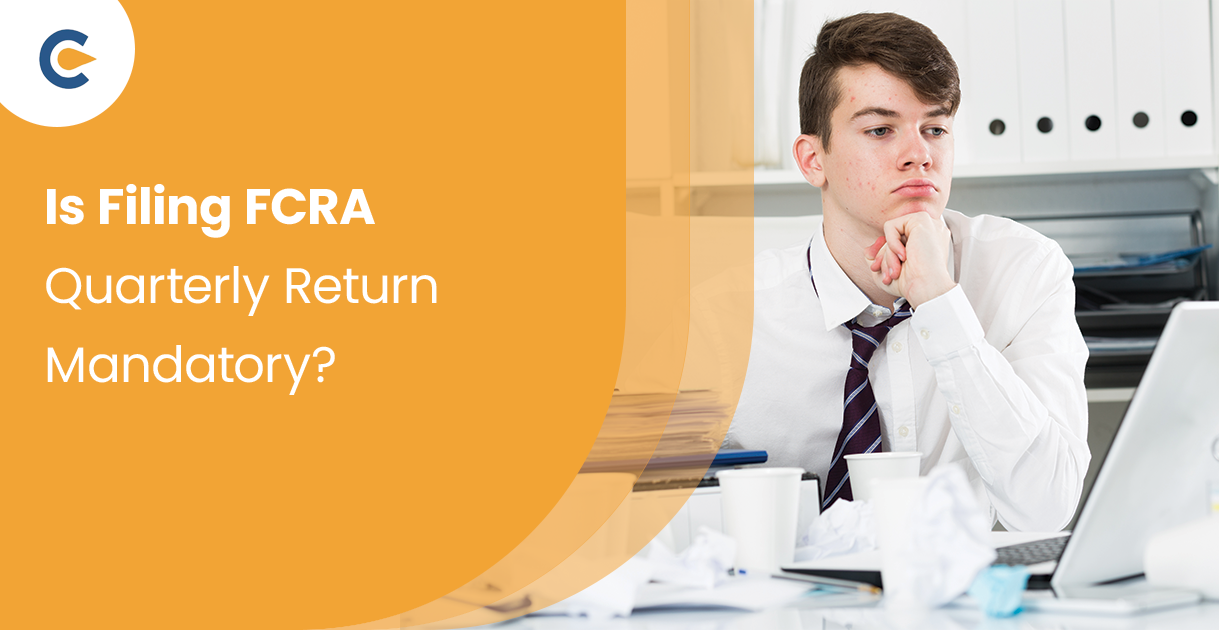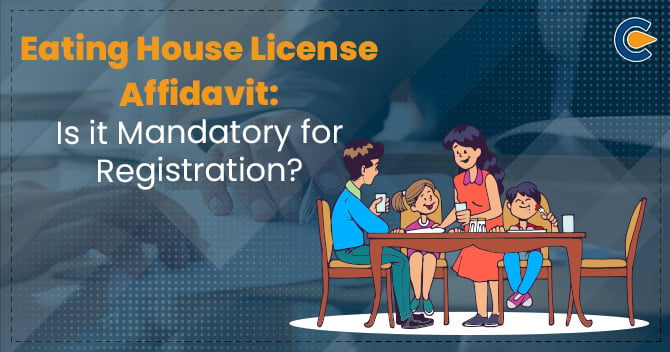The Food Safety and Standards Authority of India (FSSAI) is the government-authorized body responsible for regulating and supervising food safety in India. Sometimes, this body enforces bans on particular food items to ensure that the food consumed by the public is safe, healthy, and free from harmful substances. These bans are mainly based on environmental impacts, scientific research, and moral concerns.
The choices made by the FSSAI are essential for preserving public health and advancing moral food production methods. For years, the FSSAI has banned several food products because they presented serious dangers or raised moral queries. In this post, we will discuss 9 Foods Banned in India by the FSSAI, the reasons behind the ban of these foods in India, and the ethical concerns associated with each.
Let’s read it out:
A Brief Look at FSSAI
Before starting anything, you need to know about FSSAI. The Food Safety and Standards Authority of India (FSSAI) was established by the Indian government under the Food Safety and Standards Act of 2006, which brought together legislation and directives that previously addressed food-related matters in several ministries and departments.
To ensure the availability of healthy and safe food for human consumption, the Food Safety and Standards Authority of India (FSSAI) was established to create science-based standards for food articles and regulate their storage, manufacture, distribution, import, and sale.
9 Foods Banned in India by FSSAI
India has a broad range of cultural norms and customs, culinary traditions, and strict laws to assure food safety and keep eye on safeguarding the general public’s health. While the nation celebrates and enjoys various meals, the FSSAI has prohibited several foods for different reasons, including cultural sensitivities, environmental impact, and health concerns.
The following is a list of 9 Foods Banned in India by FSSAI, along with explanations for the bans and the consequences for the consumers.


1. Chinese Milk and Milk Products
In 2008, the FSSAI banned Chinese milk and milk products because of melamine contamination. Melamine is an unsafe chemical added to milk to artificially boost its protein content, as the infamous melamine milk scandal exposed.
Serious health concerns were associated with this pollution, specifically kidney impairment and failure in newborns and children. The prohibition was essential in shielding consumers from the dangerous consequences of tainted milk products.
2. Genetically Modified Foods (GM Foods)
India has imposed restrictions on manufacturing and importing genetically modified (GM) food products, citing worries about potential health risks, biodiversity loss, and environmental repercussions. Although Bt cotton and other GM crops may be grown for commercial purposes, the approval procedure for GM food crops is still highly stringent.
Some who argue that genetically modified foods may have long-term detrimental consequences on human health and the environment are calling for more extensive safety reviews and government oversight.
3. Potassium Bromates
In 2016, the FSSAI banned this food additive, which increases bread volume and dough flexibility because potassium bromate is carcinogenic. Research showed that there is a higher risk of cancer, especially thyroid cancer, due to the use of potassium bromate. That is why regulatory bodies have banned it from using bread and bakery goods.
The ban aims to shield consumers from any possible health risks related to eating goods containing potassium bromate. The International Agency for Research on Cancer (IARC) has entitled potassium bromate as an undoubtedly carcinogenic substance for humans. It can result in tumours, especially in the kidneys and thyroid, according to research done on animals.
4. Artificial Ripening Agents for Fruits
Due to safety as well as health risks and concerns, chemical agents utilized to artificially ripen fruits—such as ethylene gas and calcium carbide—have been banned in the vibrant economy of India.
During the process of ripening, calcium carbide, in particular, tends to release out acetylene gas, a noted carcinogen, putting the health of its consumers in the state of danger. India strives to focus on safeguarding the health of public and assure the safety and quality of fruits sold by outlawing artificial ripening agents.
5. Chinese Garlic
In 2019, FSSAI banned Chinese garlic because it is highly contaminated with pesticides. Overuse of pesticides can cause serious health issues, such as cancer. This restriction aims to shield customers from the adverse effects of tainted garlic.
6. Foie Gras
India banned Foie Gras in 2014 because of its production process, which is thought to be cruel and involves forcing ducks or geese to eat, demonstrating a dedication to animal rights. In line with international campaigns to end animal abuse, this position favors more humane farming methods for food production.
7. Brominated Vegetable Oil
Some citrus-flavored drinks contain Brominated Vegetable Oil (BVO). It is generally added to enhance flavor and taste. Such drinks are banned in India and several other countries.
8. Sassafras Oil
Sassafras oil’s high erucic acid content, which increases the risk of heart disease and other ailments, led the FSSAI to restrict it in 2003. Because sassafras oil contains higher than permitted levels of erucic acid, it is prohibited from protecting consumers’ cardiovascular health.
9. Rabbit Meat
India banned eating rabbit meat because of religious sensitivities and animal welfare concerns. This ban also encouraged more humane food production techniques in keeping with its dedication to the moral treatment of animals and respect for cultural and spiritual beliefs.
These are 9 foods banned in India by the FFSAI. The FSSAI monitors India’s food safety standards and responds appropriately to shield customers from dangerous ingredients. Making safe and healthful eating choices and remaining aware of prohibited foods are essential for maintaining well-being.
Food Business Operators Who Require FSSAI Registration?
The FSSAI License /Registration is required for Food Business Operators (FBOs) operating the following types of food businesses:
- Petty sellers, general stores, snack shops, bakeries, confectioneries, etc.
- Food is prepared, stored, distributed, and sold at food establishments, temporary stalls, and permanent stalls.
- Hawkers wander from place to place selling packaged or freshly prepared meals.
- Dairy Units: Petty Milkmen, Milk Vendors, and Milk Chilling Units
- Processing of fish, meat, and unit in an abattoir
- Every food manufacturing facility that engages in food repackaging
- Vegetable Oil Processing Units
- Proprietary food and Novel food
- Cold/refrigerated storage facility
- Food product transporter with several specialised vehicles, including food trucks, insulated refrigerated vans and waggons, milk tankers, etc.
- Food product distributors, suppliers, wholesalers, and marketers
- Bars, Hotels, and Restaurants
- Cafeterias and canteens, which include those for midday meals
- Food Distributors and Providers
- Food is available at Dhaba, PG, a banquet facility with catering services, a home-based canteen, and food booths at fairs and religious establishments.
- Importers and Exporters of food ingredients and food items.
- E-commerce food suppliers, including cloud kitchens
To Wrap Up
The rules governing prohibited or restricted food items demonstrate the Indian government’s adherence to public health and safety. These precautions are essential for protecting customers from injury and maintaining the integrity of the country’s food supply, even though they may cause some inconvenience.
Frequently Asked Questions
What is FSSAI?
FSSAI (Food Safety and Standards Authority of India) is the regulatory organisation responsible for ensuring food standards and safety are met in India.
Why does the FSSAI ban certain foods?
FSSAI is in charge of guaranteeing the nation's food safety. Foods are prohibited because of possible health and environmental risks.
Why have FSSAI-restricted foods with high levels of trans fats?
Trans fat-rich foods should be limited because they have been connected to heart disease and other health problems.
Which food colours and additives are banned by FSSAI?
The FSSAI prohibits specific artificial food colouring and additives that cause cancer or allergic responses.
Where can I find more information about banned foods in India?
Government notifications and the FSSAI official website provide comprehensive information on prohibited items.
How can I stay updated on Food Safety Regulations?
You can check out the latest updates on the FSSAI website (https://www.fssai.gov.in/) and subscribe to reliable sources on food safety issues through news and media.
What are examples of banned foods?
Chinese milk (tainted with melamine), potassium bromate (associated with cancer risk), and fake fruit ripeners (containing toxic compounds) are among the prohibited goods.
What is the FSSAI compliance rating?
The business grade assesses a food business's compliance with food safety regulations and is frequently made public to educate customers.
What are the penalties for not having an FSSAI license?
A firm operating without an FSSAI license may face severe fines, jail time, or even shut down.
What is FSSAI in food labelling?
The FSSAI oversees food labelling regulations to guarantee that consumers are given information about correct ingredients, nutritional value, and allergens.
How does FSSAI ensure food safety?
FSSAI regularly conducts testing, audits, and inspections to ensure food enterprises abide by safety standards and laws.
What is the FSSAI Hygiene Rating Scheme?
Food outlets are assessed voluntarily according to their safety and sanitary standards, which assists customers in making well-informed decisions.
What is a food recall, and what is its purpose?
“Recall” is the activity done by the FBO to remove any food that does not adhere to Section 28 of the FSS Act of 2006 from the market.
Who is the regulatory body Under India’s Act?
State Food Authorities and India’s Food Safety and Standards Authority share information on FSSA, 2006 implementation, and enforcement, as provided in Section 29 of the FSS Act of 2006.
Read our article FSSAI License Number: Crucial For Checking The Food Quality










